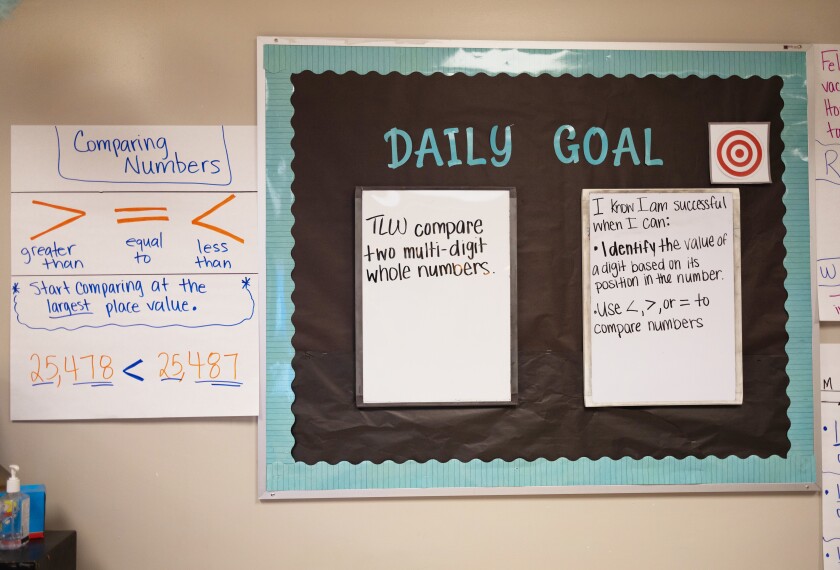A new position statement by the National Council of Teachers of Mathematics on the use of calculators in math classrooms emphasizes a “balance” between the electronic aids and paper-and-pencil computation.
The statement, approved by the organization’s board of directors last month, revisits a long-standing debate.
For years, the NCTM has come under fire from some teachers, parents, and academics who accuse the influential group of overemphasizing calculator use at the expense of students’ development of basic skills in arithmetic and numerical understanding.

But NCTM officials have argued that their position on calculators is constantly mischaracterized. Cathy L. Seeley, the president of the 100,000-member, Reston, Va.-based organization, said the statement was not a change of policy but a clarification.
“We didn’t need to let the world know we believe in calculators,” Ms. Seeley said. “What they haven’t heard is that we support a balanced approach, and always have.”
Read the National Council of Teachers of Mathematics’ position statement on calculator use.
The statement is posted on the NCTM Web site alongside the organization’s two previously adopted policies on calculator use, published in 2002 and 2003, and is not meant to replace them.
The one-page statement generally includes more language stressing that students must acquire the ability to make quick mental calculations and estimations without using calculators. Still, the statement notes that “technology pervades the world outside school,” and that students must become adept at using it. Calculators, it says, can save students time in performing lengthy mathematical expressions.
Keypads and Pencils
“The teacher should help students learn when to use a calculator and when not to, when to use a pencil and paper, and when to do something in their heads,” the new statement says.
The older statements describe a need for students to develop many skills, but in addition, they cite the advantages of calculators, the incorporation of technology into courses and curricula, and the need for teachers to remain up to date on calculator technology.
Martha Schwartz, a founder of Mathematically Correct, a nationwide organization that advocates a re-emphasis on basic math skills, questioned the NCTM’s sincerity in issuing the updated policy.
“I see it as a political statement,” said Ms. Schwartz, a former public school teacher who lives in Los Angeles. She described the calculator policy as, “rhetorically not terrible.”
“They’re trying to gloss over [the issue] to say, ‘We didn’t mean it in the first place,’ ” Ms. Schwartz said of the organization’s new calculator statement.
But Ms. Seeley said the NCTM’s promotion of both basic math skills and calculators was clear as early as the organization’s 1989 academic standards. The group has never suggested that “rote button-pushing has to take the place of rote pencil-and-paper skills,” she said.




